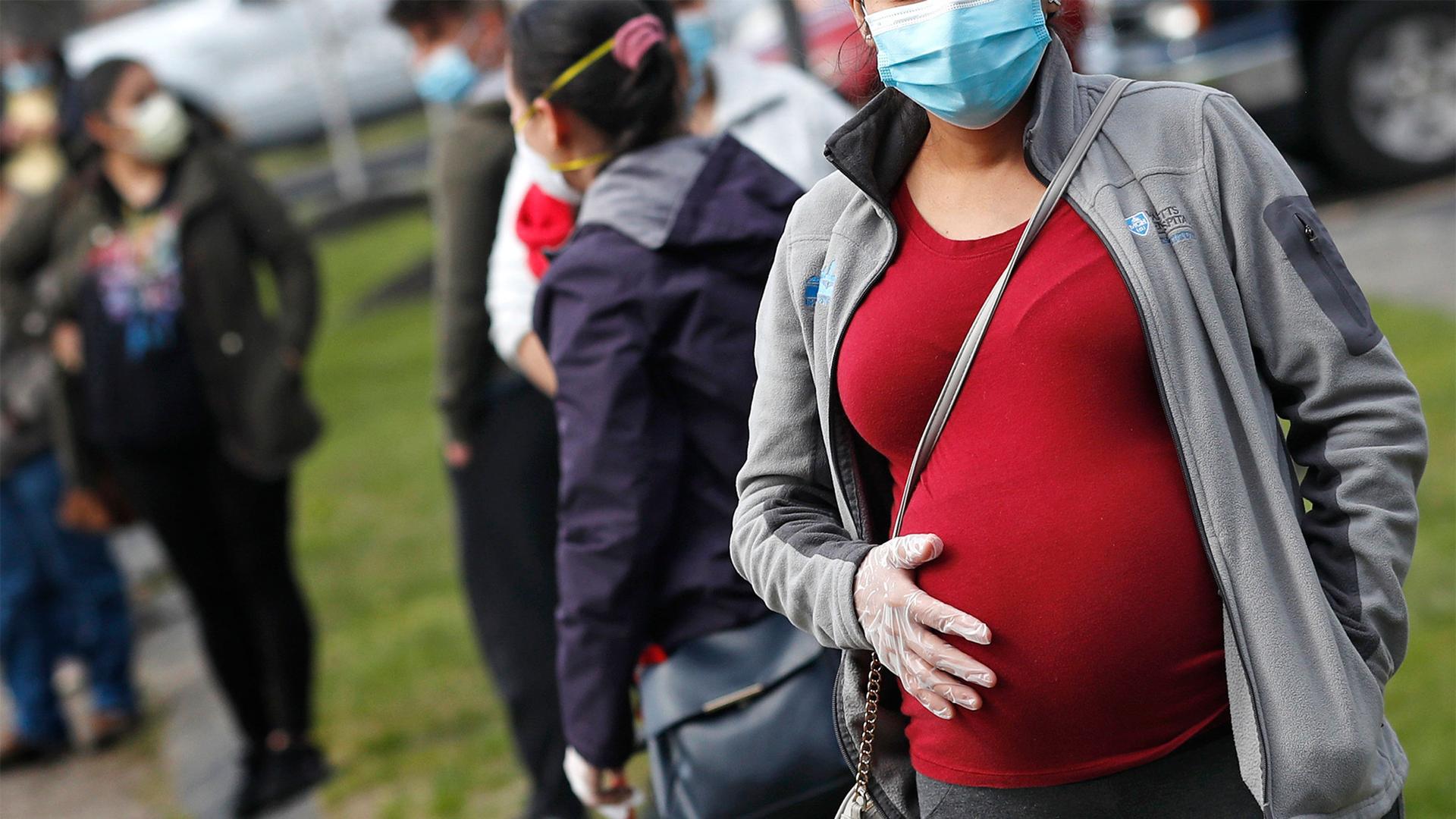Discussion: The pandemic, women’s health and pregnancy
A pregnant woman wearing a face mask and gloves holds her belly as she waits in line for groceries at St. Mary’s Church in Waltham, Mass., May 7, 2020.
Women around the world have faced big challenges with the COVID-19 pandemic, whether it be health precautions around pregnancy or having to take on stressful roles within their families and communities. Plus, women have made up the majority of healthcare workers around the world dealing with the rising cases.
Social impacts
In many parts of the world, the NGO World Vision found that an additional 3.3 million children are at far greater risk of child marriage due to the pandemic. It states that between March and December of 2020, child marriages more than doubled in many communities in which they work, compared with 2019, often caused by rising hunger levels and loss of education opportunities.
Related discussion: The omicron variant and holiday travel
Pregnancy and physical health
Women may experience certain physical impacts during the pandemic, with some reporting higher blood pressure and changes in their menstrual cycles. In the US, women appear less likely than men to die from Covid-19. But pregnancy has brought added challenges. Some expectant mothers have been hesitant to get the vaccine, afraid that it may affect their babies or lead to infertility. Health experts — including those from the American College of Obstetricians and Gynecologists, Centers for Disease Control and Prevention and the National Institutes of Health — have stated that there is no evidence to back those claims, but some women remain skeptical.
The CDC stated last month, based on a study conducted by the Mississippi State Department of Health, that pregnant women and their babies are at increased risk of severe outcomes from COVID-19 itself, including death and stillbirths.
Meanwhile, the new COVID-19 pill from Merck, known as molnupiravir, has been lauded for potentially cutting hospitalizations for infected people, especially with the spread of the latest omicron variant. But two weeks after the Food and Drug Administration authorized the drug, it’s still learning about its effects. And scientists have actually cautioned pregnant women to steer clear of the drug, saying it could affect a fetus’s dividing cells, which could then, in theory, cause birth defects.
Related discussion: Children’s mental health during COVID
So, what policies and systems are there that can help support women — particularly in low- and middle-income countries — including access to healthcare and caretaker support?
As part of The World’s regular series of conversations about the pandemic, reporter Elana Gordon moderated a discussion with Ana Langer, Professor of the Practice of Public Health and Director of the Women and Health Initiative at the Harvard T.H. Chan School of Public Health about the pandemic-related challenges affecting women in particular.
Our coverage reaches millions each week, but only a small fraction of listeners contribute to sustain our program. We still need 224 more people to donate $100 or $10/monthly to unlock our $67,000 match. Will you help us get there today?
